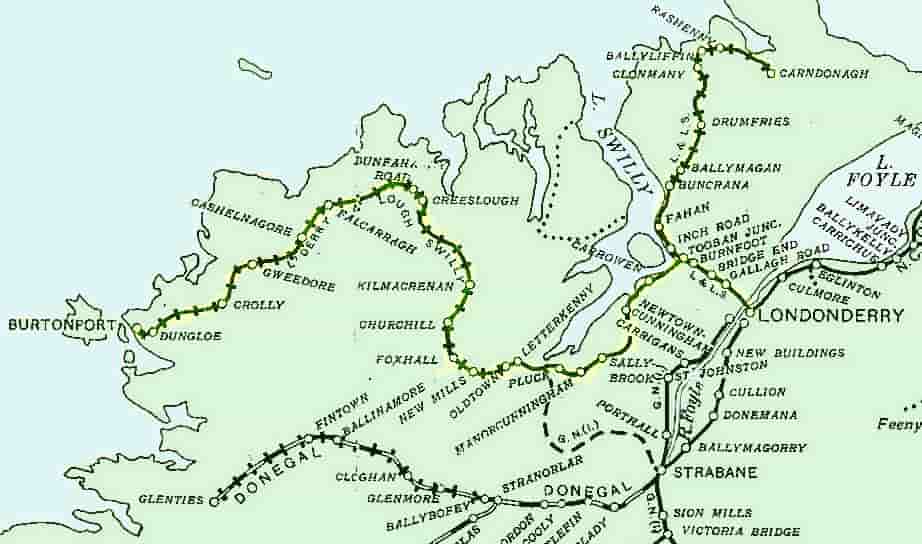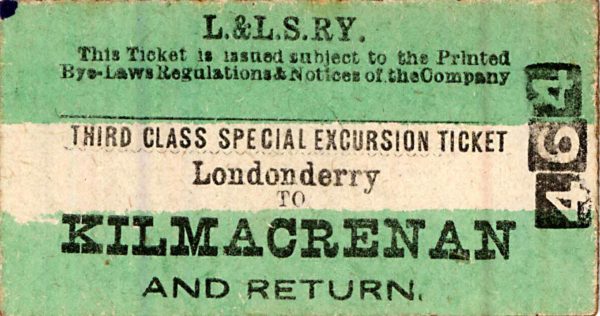The oldest railway company established in the Victorian era to continue trading as a commercial concern into the 21st century.
The Londonderry and Lough Swilly Railway Company (The L&LSR, the Swilly) was an Irish public transport and freight company that operated in parts of County Derry and County Donegal between 1853 and 2014. Incorporated in June 1853, it once ran 99 miles of railways. It began the transition to bus and road freight services in 1929. It closed its last rail line in July 1953 but continued to operate bus services under the name Lough Swilly Bus Company until April 2014, becoming the oldest railway company established in the Victorian era to continue trading as a commercial concern into the 21st century. Following a High Court petition by HM Revenue and Customs, the company went into liquidation and operated its last bus services on 19 April 2014.
Initially planned as the Derry and Lough Swilly Railway Company when an application for incorporation was filed in 1852 after spurning the construction of a canal network to connect the two inlets, the company opened its first line between Derry and Farland Point on 31 December 1863. A branch line between Tooban Junction and Buncrana was added in 1864, and much of the Farland Point line was closed in 1866.
In 1883 the three ft (914 mm) narrow gauge Letterkenny Railway between Cuttymanhill and Letterkenny was opened, and the L&LSR connected with it by reopening the Tooban Junction – Cuttymanhill section of its Farland Point line. The L&LSR worked the Letterkenny Railway and in 1885 it converted its track from 5 ft 3 in (1,600 mm) gauge to 3 ft (914 mm) narrow gauge to enable through running. In 1887 ownership of the Letterkenny Railway passed to the Irish Board of Works, which continued the agreement by which the L&LSR operated the line.
Carndonagh could be reached by an extension completed in 1901 and Burtonport by one finished in 1903. Both lines were constructed as joint ventures with the UK Government, with ownership and liabilities shared between the two parties. During this period the company did not make a profit and struggled to meet its debts.





I vaguely remember travelling by train from Derry to Buncrana, probably 1952 , with my parents to sit on the strand. My Da, Jim Martin would take his sisters, my Aunts, Mena & Bridie Martin, to the dancing at the Swilly Hotel in Buncrana. I still like a drink in the Drift Inn when I’m in the North